The days your bins will be collected is changing. Read our FAQ's about your new collections.
Business planning, support and funding
Our team are here to support you whether you’re starting a new business, looking to expand an existing business or want some support generally with marketing, development and growth challenges.
Business support
If you’re looking to expand your business and need funding to diversify and bring your product or services to a new market, we can help.
From start-ups to business development for growing firms, we can offer you support and guidance on the following:
- starting up a new business
- planning and licensing
- finding grants, you might be eligible for
- recruitment, apprenticeships, internships and working with schools
- expanding or relocating your business
- food safety
- environmental issues
- waste and recycling
- sharing your good news via our social media platforms
For further information, please contact us at economic.growth@north-norfolk.gov.uk.
Find out more about funding opportunities and grants offered by the Council through the Rural England Prosperity Fund.
Business grants and funding
Grants provide finance to allow your business to undertake a specific project that, without financial assistance, it would not be able to proceed. Such projects might involve the initial start-up of the business, developing a new product or buying equipment.
A grant is usually a one-off payment and provides funding that covers a percentage of the project's costs - normally, you or your business will have to meet some of the costs too. Unlike a loan, a grant does not usually have to be repaid unless your business fails to comply with the specific eligibility requirements and conditions of the scheme. You will need to check that you meet the eligibility criteria for a particular grant and consider what will be required to satisfy the funders' requirements.
Current grant schemes
In this section, we highlight current grant schemes that are available for businesses in Norfolk.
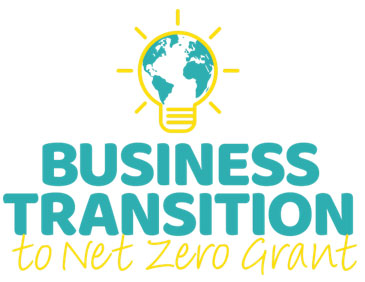
Business Transition to Net Zero
What does it offer?
The Business Transition to Net Zero Grant is aimed at businesses in Norfolk and Suffolk with ambitions to reduce their carbon footprint and increase productivity. Grants between £25k and £100k are available, with a maximum intervention rate of 20% of the cost of capital developments. To be awarded the minimum of £25k, you must show total project costs of at least £125k.
Who funds and administers it?
This grant is funded by New Anglia LEP and managed by New Anglia Growth Hub.

Go Digital
What does it offer?
This programme provides free digital business support to small and medium-sized businesses in Norfolk. It provides a one-to-one consultancy with a digital advisor and a grant of up to £500 to help you set up a digital action plan.
Who funds and administers it?
Funded by the European Regional Development Fund and managed by Norfolk County Council in partnership with Suffolk County Council.

Green Heat Network Fund
What does it offer?
The Green Heat Network Fund (GHNF) is a 3-year, £288 million capital grant fund that will support the commercialisation and construction of new low and zero-carbon (LZC) heat networks (including the supply of cooling) and the retrofitting and expansion of existing heat networks. It aims to develop and grow the heat network market and address some of the challenges of decarbonising the UK’s heat sector.
Who funds and administers it?
This government grant is delivered by Heat Network Transformation Programme (HNTP).
Closing date
29 November 2024 at 10:59pm

Rural Business and Communities Grant: Businesses
What does it offer?
The Rural Business and Communities Grant is designed to support the development of larger capital projects such as the refurbishment of buildings, small capital build projects or the purchase of equipment, tools or machinery to expand growth, move towards net zero or diversify business activity.
Any businesses, community interest companies and social enterprises can apply.
Grants available from £10,000 to £100,000. Available from July 2023 to March 2025 (subject to available funding).
Who funds and administers it?
This grant is funded by UK Government and managed by NNDC and New Anglia Growth Hub.

Rural Business and Communities Grant: Communities
What does it offer?
The Rural Business and Communities Grant is for community groups looking to support the development of small to medium infrastructure projects such as the refurbishment of spaces, small capital build projects or the purchase of equipment, tools or machinery.
Any community groups, community interest companies, town and parish councils, voluntary groups and charities can apply.
Grants available from £10,000 to £50,000. Available from July 2023 to March 2025 (subject to available funding).
Who funds and administers it?
This grant is funded by UK Government and managed by NNDC and New Anglia Growth Hub.

Workplace Charging Scheme
What does it offer?
The Workplace Charging Scheme (WCS) is a voucher-based scheme that supports eligible businesses towards the upfront costs of purchasing and installing electric vehicle (EV) charge points. All businesses can use it to help provision charge points for their staff or fleets. Charities and small accommodation businesses can use it to provide charge points for their guests or visitors.
Who funds and administers it?
This fund is a government grant from the Office of Zero Emission Vehicles (OZEV).
Closing date
31 March 2024 at 11:59pm
Loans
Business loans are available through the main high-street banks and the recently established challenger banks, such as Monzo, Revolut and Starling. Shopping around for the best deal for personal and business circumstances is important. Factors to consider are the:
- amount you need to borrow
- rate of interest charged
- repayment period that you can afford
For a business start-up, the loan will likely need to be secured against a personal asset such as your house or other property.
Current loan schemes
In this section, we highlight national loan schemes that are available for businesses.

Start Up Loans
Start Up Loans is a national scheme that provides loans to people aged 18 and over to help them start up or develop a business that has been trading for less than 24 months.
Loans are repayable over one to five years, and the interest rate is currently fixed at 6%. Loans of up to £25,000 are available, and the average loan amount is £7,200.

Recovery Loan Scheme
The Recovery Loan Scheme is a government-backed scheme which supports access to finance for UK businesses as they recover and grow following COVID.
Small businesses with a turnover of up to £45m may obtain loans from £25,001 up to £150,000, with terms from three to six years.
Let's Do Business Group Finance is currently accepting applications from businesses based in Norfolk.
Community grants and funding from NNDC
If you are a charity, a community interest organisation (CIO), a community interest company (CIC) or any other form of not-for-profit organisation, you may be able to access community grants to support your project. You must check that you meet the eligibility criteria for a particular grant and consider what will be required to satisfy the funders' requirements.
North Norfolk District Council administers several community grant schemes. You can find details here.
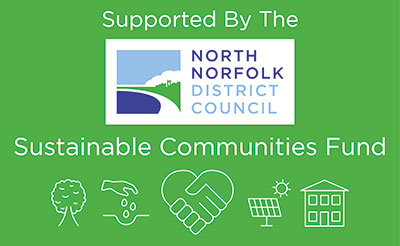
North Norfolk Sustainable Communities Fund
The North Norfolk Sustainable Communities Fund will assist communities in meeting their needs with capital and revenue project funding.
The fund will help communities develop new and innovative projects that will improve their environment and their health and social wellbeing.
The fund is available for projects that:
- Demonstrate positive environmental outcomes through capital or revenue projects.
- Demonstrate that they have focused on increasing the positive environmental impacts of the project and on reducing its negative environmental impacts.
- Conserve or enhance the biodiversity of a community.
- Help to promote or embed sustainability in the wider community.
- Promote physical and mental wellbeing and healthy within North Norfolk.

Armed Forces Community Fund
The Armed Forces Community Fund offers grants of up to £300 to voluntary and community organisations aligned with the armed forces and community, town and parish councils, whose projects are based within North Norfolk.

Arts and Culture Fund
The Arts and Culture Fund offers grants of up to £3,500 to voluntary and community organisations whose project is based within North Norfolk, including town and parish councils.
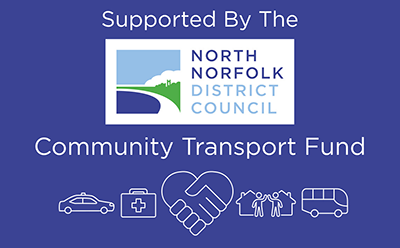
Community Transport Fund
The Community Transport Fund offers grants to voluntary and community organisations and town and parish councils, whose project will benefit vulnerable, disadvantaged, and isolated people of all ages living in rural areas by providing a flexible community transport service that will enable them to access the necessary services and facilities.
Community grants and funding from elsewhere
In this section, we highlight current community grant schemes that are available in Norfolk.

Big Energy Saving Loans: Big Issue Invest
Big Issue Invest offers loan finance between £20,000 to £200,000 to social enterprises and charities in England for energy efficiency and renewable energy installation.
This lending programme aims to enable social enterprises and charities to access loan funding to save money on energy during the unprecedented cost of living crisis.
Investment can be used for a variety of projects, including:
- insulation
- buying and installing renewable energy equipment
- heat exchangers and heat pumps
- LED light installations
- replacing old gas-fired boiler systems with new efficient ones
- property improvements, such as extra single glazing on existing windows, double glazing improvements, systematic draught improvements energy efficiency survey and technical assistance costs

VCSE Energy Efficiency Scheme Groundwork UK
The VCSE Energy Efficiency Scheme will help voluntary, community and social enterprise organisations (VCSEs) across England to deliver more efficient services for people and communities by saving money on their energy bills.
The scheme offers independent energy assessments to help identify energy-saving opportunities in your building. From January 2024, it will also offer capital grants to implement measures recommended in your assessment.
Applicant organisations must be VCSE-based in England and deliver frontline services. They must demonstrate that they are financially sustainable, require support around energy, and are not suitable for blended finance or loan support through other schemes.
The scheme is funded as part of a package of over £100 million of support being delivered by the Government to help frontline delivery organisations with the increased cost of living.
Capital Grants of between £2,000 and £150,000 can be used to install capital energy efficiency measures identified in your Independent Energy Assessment (IEA), which will reduce your building’s energy costs and support the delivery of your frontline services.
The next round of funding for capital grants is due to open in April 2024.

Village Halls Small Grants: Department for Environment, Food and Rural Affairs and ACRE
In 2023, a £3 million village halls fund was launched to support the modernisation and improvement of village halls in England.
Managed by Action with Communities in Rural England (ACRE), the fund has already awarded over £1 million to rural communities, helping them undertake ambitious improvements to their building. Works undertaken or scheduled to take place include new roofs, insulation, extensions, and more energy-efficient heating systems.
The grant fund has now reopened to new applicants who wish to undertake smaller projects such as disability access, toilet upgrades, and new kitchens. Grant awards of between £2,000 and £5,000 and up to 20% of eligible project costs are available. Project expenditure must take place before 31 March 2025.
The fund is expected to stay open until December 2024. However, it may be withdrawn before this.
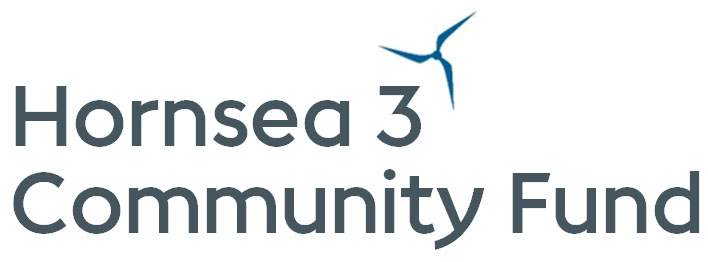
Hornsea 3 Community Fund
Ørsted currently provides approximately £1.3 million each year to projects in the regions where they operate.
In support of their Hornsea 3 project, they are looking to launch the Hornsea 3 Community Benefit Fund, subject to the final investment decision (FID) being made to proceed with the development.
A community consultation exercise was carried out between April 2022 and March 2023 to seek views and support from local stakeholders on how this new fund should be set up.
Ørsted is currently working with a local advisory panel to finalise the details of the fund. The fund is expected to open to applications in the summer of 2023.

Sheringham Shoal Community Fund
The Sheringham Shoal Community Fund will support projects proposed by groups inspired to do something new and positive in their community. Projects should focus on one or more of the following:
- Contribute to reducing climate change.
- Assist North Norfolk communities' sustainability by stimulating their ability to solve issues and create opportunities, for example, by providing educational or community business facilities.
- Have a marine environment or marine safety focus.
- Promote environmental sensitivity, sustainability or the benefits of renewable energy.
- Contribute to education or employment in the renewable energy industry or related arenas through access to courses and community activities.
The fund aims to award half of the funding to Wells-next-the-Sea and the surrounding area, with the remaining funds being available to the North Norfolk district.
The fund has not set an upper grant limit, but as a guide, the largest grant awarded to date is £25,000.
Norfolk Community Foundation manages the scheme.

Vattenfall Community Benefit Fund
On 25 November 2021, Vattenfall announced plans to invest more than £15 million in community projects across Norfolk through its offshore wind farms.
Vattenfall will unlock the first round of funds from the Norfolk Zone Community Benefit Fund in late 2023, when cable laying work is expected to begin.
Contact details
To find out more about the fund, contact their community engagement team directly:
Denise Hone, Stakeholder and Community Engagement, Manager for the Norfolk Zone Projects
Email: denise.hone@vattenfall.com
Phone: 07773 122025
Will Sealey, Local Liaison Officer for the Norfolk Zone Projects
Email: william.sealey@vattenfall.com
Phone: 07773 661068
Search for grants

Find a grant
Find a grant is a service that allows you to search government grants.

Grants4Norfolk
Norfolk County Council offers a free search tool for businesses and communities seeking funding opportunities.
Starting a new business
If you are considering starting a business, buying into a business opportunity or becoming self-employed, our team can help.
What you need to do to set up depends on your type of business, where you work and whether you want to employ staff.
We work closely with support organisations across the district and county that offer training, advice and funding. We can support you directly or act as a facilitator for business enquiries across the Council. For example, we can:
- provide advice on starting up a new business venture
- give support and advice on finding business premises
- help with business planning, networking and connections with like-minded businesses
Where to get business support for new businesses

NWES
NWES is a not-for-profit enterprise agency providing business support to boost self-employment and encourage enterprise. They offer advice, training and mentoring for those wishing to start their own business.

MENTA
MENTA is a not-for-profit company providing business advice, training, networking and office space to established and new businesses in Norfolk.
Selling or closing your business
You might decide to sell or close your business for many reasons, such as retirement, illness, inadequate profits or the need to raise capital for another project. Whatever the reason, it is important to begin planning the process well in advance to help you get the best price (if the business is sold) and comply with your legal responsibilities.
This section outlines some key considerations when planning the sale or closure of your business, such as:
- preparing for the sale
- finding potential buyers
- notifying HM Revenue and Customs (HMRC) that you are leaving self-employment and finalising your tax returns.
- a summary of your statutory duties towards any employees
Preparing your business for sale
If you decide to sell your business, ensuring that your accounts and other records are up to date is essential. This is so that potential buyers (and their accountants and solicitors) can carry out the financial and legal due diligence checks to enable them to make an informed decision.
Buyers will typically look for evidence of increasing profits and turnover, healthy cash flow, a growing customer base, and compliance with any legal or regulatory issues affecting your business.
Records that they may ask to see, for example:
- profit and loss accounts, balance sheet and cash flow forecasts
- tax and VAT returns
- employee contracts and policies
- supplier and customer contracts
- details of business assets
Finding potential buyers
You can find potential buyers for your business in a range of ways. These include:
Listing your business on business sales platforms such as:
Using a business broker or commercial property agent, who will typically have access to multiple business sales platforms and their own database of potential business buyers.
Leaving self-employment
If you are leaving self-employment when you sell or close your business, you must tell HMRC by completing an online form covering self-assessment and National Insurance contributions.
You must also submit a self-assessment tax return for the tax year in which your self-employment ended. For example, if you cease trading in August 2024, you must submit a return for the tax year 2024/25.
Ending a partnership
If you are a member of a business partnership, the information that you must give HMRC depends on whether the entire partnership is being sold or just your share in it.
If it is only your share that is being sold, you just need to tell HMRC you are leaving self-employment and submit your personal self-assessment tax return by the deadline.
If the entire partnership is being sold or closed, you must also make sure that the 'nominated partner', meaning the partner with responsibility for dealing with the partnership's tax affairs, completes a partnership tax return by the deadline.
Selling or closing a limited company
You have additional responsibilities if you sell or close a limited company. For example, if the company is sold, you must appoint new directors before resigning. You must also notify Companies House by updating the registered details of your company.
If you have financed the company with a loan secured against your personal property, for example, if you have mortgaged your home to fund the business, you must tell the loan provider about the sale within 21 days.
Further information
- Selling your business: your responsibilities: Limited company - GOV.UK
- Closing a limited company - GOV.UK
Capital gains tax
When you sell your business or its assets (such as premises and equipment), you must check whether you need to complete the capital gains pages on your self-assessment tax return. If you make a profit on the sale, you may also need to pay capital gains tax.
You may be able to claim tax relief on any profits you make, such as Business Asset Disposal Relief.
VAT
If your business is registered for VAT, you must cancel your registration when the business is sold or closed. However, you can transfer the VAT registration to the new owner in some circumstances.
You can cancel your VAT registration or transfer your registration on the GOV.UK website.
Employers' responsibilities
If you sell your business, your employees have certain rights under the Transfer of Undertakings (Protection of Employment) regulations (TUPE). For example, they must be kept informed about the sale, and they have some protection against dismissal or changes to their employment contract.
Visit business transfers, takeovers and TUPE at GOV.UK for more information about employee rights when a business is sold.
If you close your business, you must make your employees (if any) redundant. You must keep them informed and follow a fair redundancy process. Depending on how long they have worked for you, they may be entitled to redundancy pay.
Visit making staff redundant at GOV.UK for more information about your responsibilities when making employees redundant.
Useful resources

Selling your business: your responsibilities
What you must do when you sell your company, partnership or sole trader business.

Closing a company
Detailed information about closing a company.
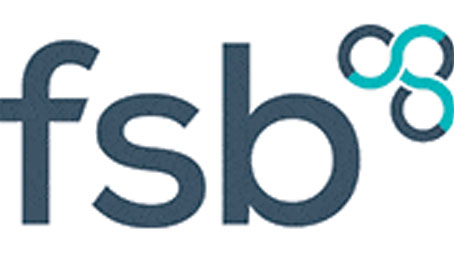
How to sell your business
FSB have broken down the essential steps you need to take when selling your business as a sole trader, partnership or limited company, including finalising your taxes and updating your team.
